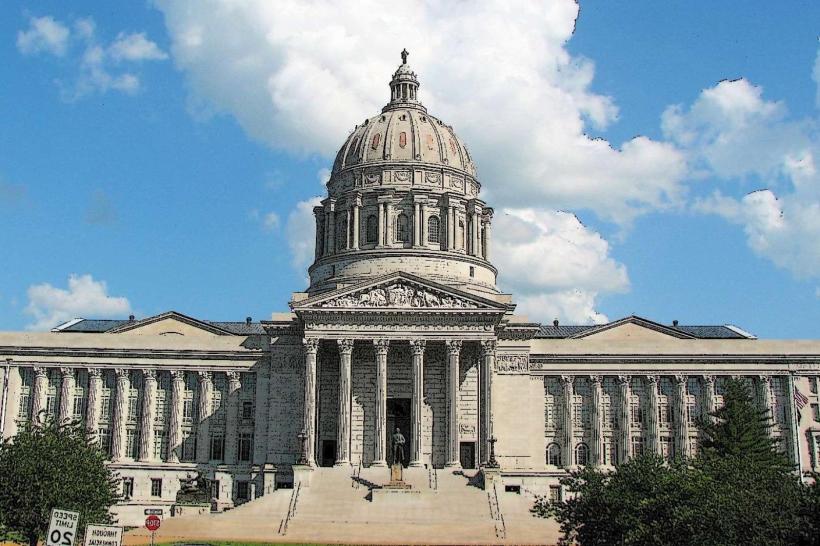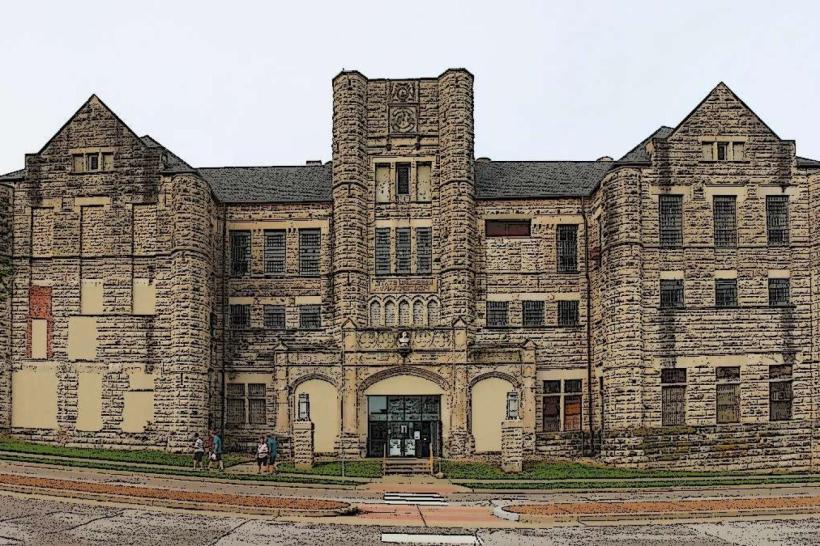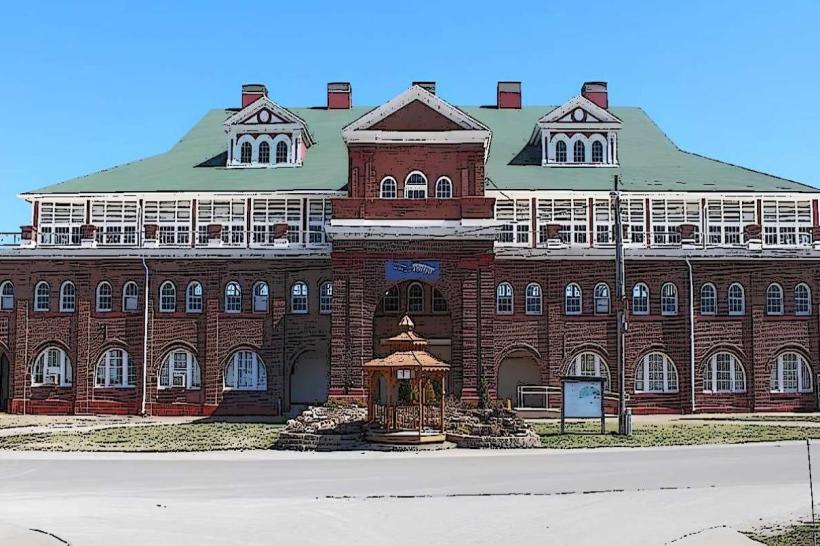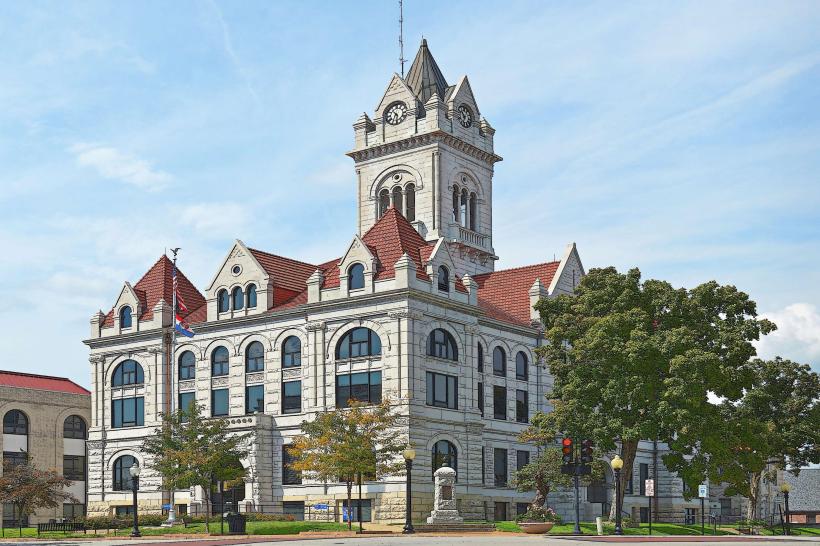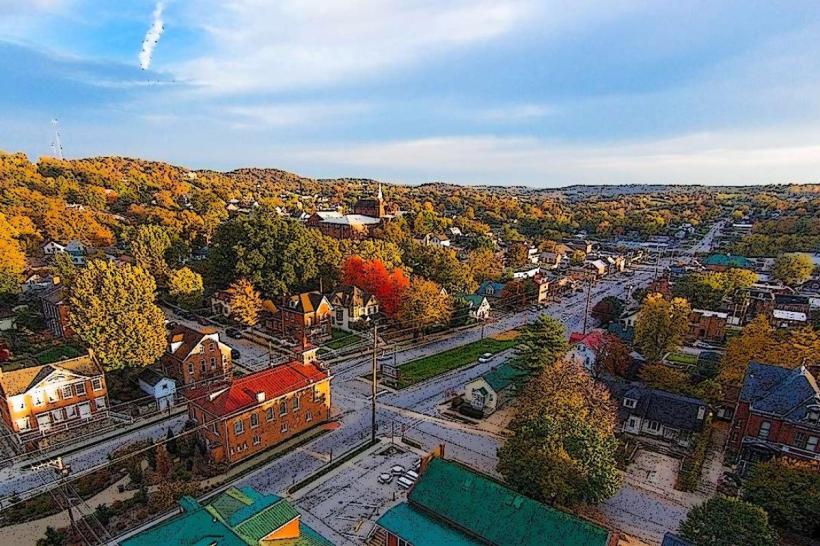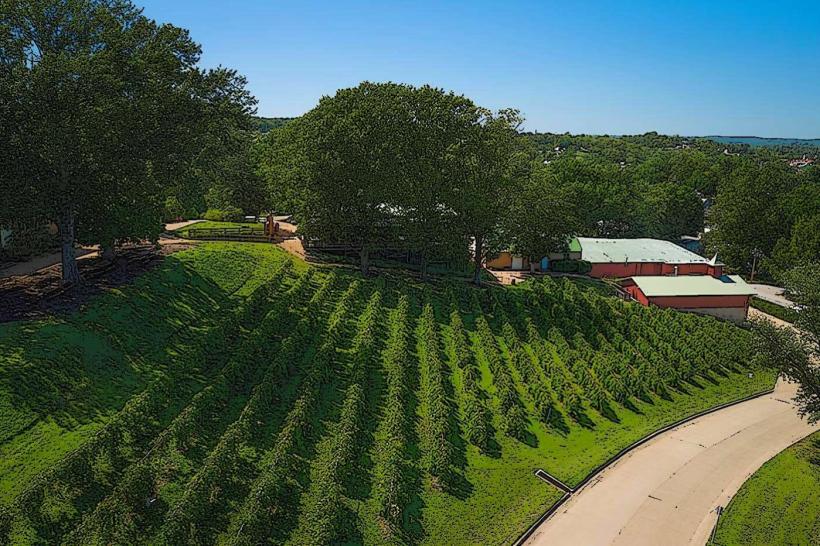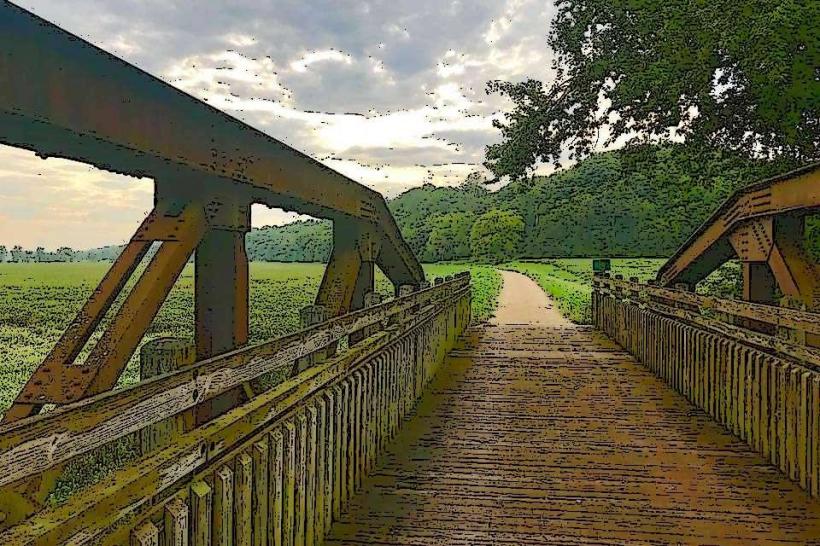Information
Landmark: Missouri River Valley TrailsCity: Jefferson City
Country: USA Missouri
Continent: North America
Missouri River Valley Trails, Jefferson City, USA Missouri, North America
Overview
Winding along the Missouri River through Missouri and neighboring states, the Missouri River Valley Trails link a rich mix of paths, leafy greenways, and inviting corridors where you might hear gravel crunch underfoot, after that winding along one of North America’s longest rivers, these trails invite you to hike, bike, ride horseback, watch deer slip through the trees, and explore rich cultural landmarks that link wild landscapes, historic places, and riverside towns.The Missouri River Valley Trails stretch along both banks of the river, winding through busy city streets, quiet suburbs, and open countryside, meanwhile the trails start where the river slips into Missouri near Kansas City, wind through the state’s center, and finish at its meeting with the Mississippi just outside St, slightly Louis, in turn the trails weave through state parks, wind past quiet conservation areas, link city greenways, and follow smooth, dedicated paths where you can hear bike tires humming.Missouri River Valley’s Katy Trail State Park forms the backbone of the trail network-a 240‑mile rail‑trail that hugs the river’s bends and acts as the main route for cyclists, hikers, and weekend wanderers, also the Missouri Riverfront Trail in Kansas City winds along the water’s edge, its smooth pavement linking leafy parks, lively cultural spots, and the bustle of downtown.Columbia’s MKT Trail links the city to the Katy Trail near McBaine, opening an easy path into the river valley and strengthening outdoor connections across central Missouri, not only that river Bluff Trail in Jefferson City winds through shady woods and past spots rich with history, opening up to sweeping views of the Missouri River bluffs just outside the state capital.Segments of the Lewis and Clark Trail preserve stretches of the expedition’s original route, marked with signs and winding alongside recreational paths through the river valley where cottonwoods still rustle in the wind, furthermore the Missouri River Valley Trails take you through a mix of landscapes, from towering limestone bluffs draped in hardwood trees to quiet stretches of forest where cool shade and sweeping views make every turn worth slowing down for, fairly Funny enough, The trail winds through lush wetlands and broad floodplains, where herons lift off from the water’s edge and deer move quietly among wildflowers, turtles, and other native wildlife, along with the trails wind through river towns, aged districts, and storied landmarks, revealing the region’s Native American roots, traces of early European settlers, the bustle of the steamboat age, and fields shaped by generations of farming.Along the way, visitors can step into interpretive centers and museums where exhibits dive into the Missouri River’s ecological value and rich cultural past-like the scent of timeworn timber in a recreated pioneer cabin, in conjunction with the Missouri River Valley Trails offer something for everyone, from a gentle stroll along the river’s edge where you can hear the water lapping, to challenging hikes that wind up steep bluffs.It appears, Cycling: From the shaded bends of the Katy Trail to bustling riverfront routes downtown, these multi-use paths welcome everyone-from relaxed weekend riders to cyclists pushing for miles, equally important on certain stretches, you can ride horseback, feeling the trail’s dust rise as you move through open, sunlit landscapes.It appears, Birdwatching and wildlife viewing are a treat here-the river valley offers some of the best spots to catch sight of migrating flocks and native animals rustling through the grass, moreover many trailheads open right onto the Missouri River, where you can cast a line, slide a kayak into the water, or launch a minute boat with the morning mist still clinging to the banks.Oddly enough, State park departments, city governments, conservation groups, and volunteers work together to keep the trails in shape, from clearing fallen branches to repairing worn footpaths, not only that teams work together to keep trails in good shape-patching muddy spots, linking segments for easier journey, boosting safety, and protecting the surrounding wildlife, somewhat It seems, Signs along the trail, detailed maps, and interpretive displays guide people through the network and draw them closer to the river valley’s rich story, from its winding bends to the whisper of reeds in the breeze, simultaneously the Missouri River Valley Trails boost the local economy by drawing in visitors, filling slight-town cafés, and fueling outdoor recreation businesses.They help keep nature thriving-safeguarding green corridors where wildflowers bloom, preventing riverbank erosion, and encouraging people to care for the land, at the same time getting people involved with the trails boosts health and wellness, sparks cultural awareness, and promotes caring for the land-like picking up litter after a morning hike, almost You’ll find Missouri River Valley Trail access points scattered along the river corridor, each offering parking, restrooms, and picnic tables-and in a few spots, even a location to pitch a tent under the cottonwoods, therefore the trails stay open all year, though the crowds and the crunch of leaves underfoot change with the season.River towns along the trail welcome travelers with cozy inns, good food, and plenty of other services, so it’s easy to come for a quick afternoon ride or stay for a long, meandering adventure, and the Missouri River Valley Trails weave through a diverse network of paths, inviting visitors to explore and protect the river’s wild beauty, storied past, and vibrant culture-sometimes with cottonwoods whispering overhead.They invite residents and visitors to step outside and explore-connecting lively neighborhoods, sweeping green hills, and centuries-classical landmarks along one of America’s great rivers, moreover these trails are essential for protecting wildlife, offering places to hike under tall oaks, and preserving the character of Missouri and the states around it., kind of
Author: Tourist Landmarks
Date: 2025-10-06

